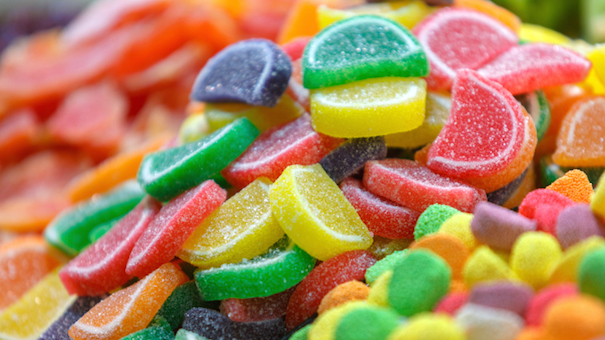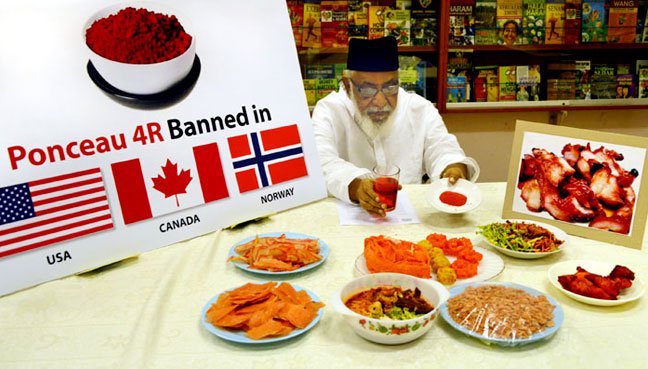Your Favourite Reddish Tandoori Chicken May Have Dangerous Food Dye
The substance used to prepare these food is produced from petroleum products.
The Consumers Association of Penang (CAP) has urged the government to impose a ban on Ponceau 4R, a food dye known to cause cancer, allergic reactions, and asthma upon consumption
Ponceau 4R is a type of synthetic red dye, produced from petroleum products and is used to colour almost everything, from candies to spices.
This dye is currently banned in U.S., Norway, and Canada for the dangers it can pose when consumed by humans.
A research in Toxicological Sciences in 2001 showed that there was a connection between the colouring and tumours in animals. However, there were calls for more conclusive research to be carried out.
Besides that, Ponceau 4R has also been linked to hyperactivity as well as problems for those with asthma.
"Hawkers and food producers use dyes in food to deceive consumers into believing that good and nutritious ingredients are being used but in reality, the food has been coloured with harmful dyes," CAP President SM Mohamed Idris said.
He said that the dye is being used in a variety of hawker's food in Malaysia, such as mee rebus gravy, pasembur gravy, prawn fritters, and tandoori chicken that unsuspecting Malaysians consumer regularly.
He explained that the dye is used during the preparation of the dishes to provide a reddish tinge, to give the impression that the food is marinated with expensive spices like saffron.
CAP said that in its latest test, they found out that dried prawns, fish crackers and char siew (barbecued pork) from Penang, Kedah, and Perlis contained Ponceau 4R
Idris revealed that the red dye is also used when preparing pasembor and prawn fritters as well as in turmeric and curry powder.
“Our earlier tests also show that the dye was used to adulterate tea."
“The dye was also found in Indian sweets such as laddu and jelabi.”
The CAP president, in his article on Malaysiakini, also recommended the Health Ministry to take the following actions:
• Remove Ponceau 4R from the list of approved dyes in the Food Regulations 1985
• Investigate and prosecute any person found using dyes in food items which the law does not allow to be coloured. (Foods like tea, spices and dried prawns),
• Discourage food operators and manufacturers from using chemical dyes since they are dangerous and totally unnecessary,
• Conduct a media campaign to discourage consumers from purchasing food item that contains dyes, and educate them on how to read food labels properly,
• Conduct regular tests frequently on all food items sold to ensure that it is free from banned dyes and toxic chemicals.

